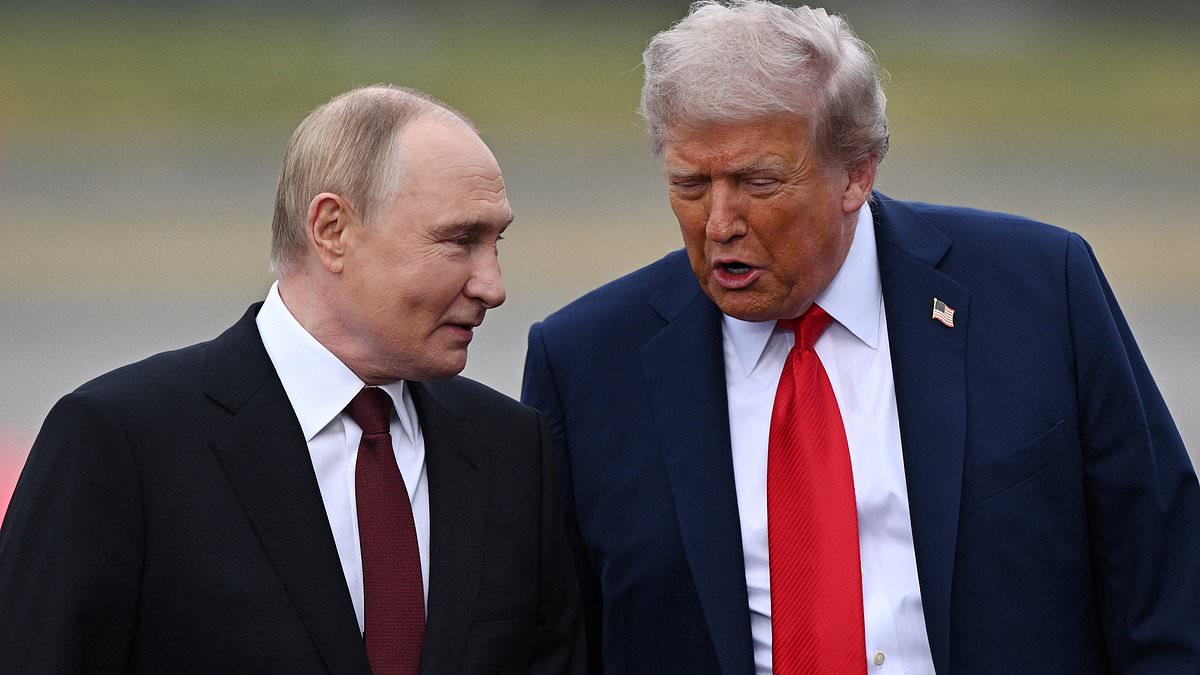
Trump and Putin’s Alaskan Summit: The Future of Ukraine at Stake
The recent summit in Alaska between U.S. President Donald Trump and Russian President Vladimir Putin has shaken the geopolitical landscape, especially concerning Ukraine. With these two leaders steering global narratives, the fate of Ukraine hangs in the balance. While some accuse President Trump of being too accommodating to Putin’s demands, there’s much more beneath the surface that warrants exploration.
Trump’s Soft Spot for Strongmen Leaders
President Trump has long been vocal in his admiration for ‘strongman’ leadership. From Russia’s Putin to China’s Xi Jinping, Trump appears drawn to their assertive leadership styles. This affinity shapes his foreign policy, which often prioritizes America’s domestic interests over international obligations. For Trump, Eastern Europe and Ukraine are less of a priority, dismissed as “second-order” issues that distract from his broader geopolitical goals, such as countering China in the Pacific.
Trump’s approach to Ukraine also reflects his wariness of the European Union. Beyond his residual fondness for Britain, his views on mainland Europe are characterized by skepticism. Viewing the EU as both a competitor and opponent, Trump is reluctant to provide continuous aid to defend Europe’s borders—a sentiment that resonates well with his isolationist American base.
Peace Talks Without Peace: The Alaskan Summit’s Controversial Outcome
The recent Alaskan talks failed to deliver a mutual ceasefire, allowing Russia to intensify its attacks on Ukraine while ‘discussing’ peace. This strategy gives Putin little incentive for genuine negotiations, especially as the Kremlin views a divided, weakened Europe as easy prey. As Trump and Zelensky meet in Washington, there’s significant pressure on Ukraine’s president to make concessions. But what kind of peace deal is truly on the table?
Experts believe there are two possible outcomes:
- Partition with Protection: Ukraine maintains 80% of its territory with guarantees of military and economic autonomy from NATO and the West.
- Partition with Subordination: A diminished Ukrainian military, limited security guarantees, and a future that leaves the country under heavy Kremlin influence.
Europe’s Role in the Face of American Retreat
Notably, major European leaders have shown solidarity by traveling to Washington to support Zelensky. While this unity is commendable, it also underscores their dependence on American leadership. With Trump increasingly signaling an American pivot away from defending Europe, European leaders face a stark reality: they must strengthen their own defenses, both militarily and politically, to stand up to Russian aggression.
What Lies Ahead for Ukraine and Democracy
The stakes couldn’t be higher. A Nobel Peace Prize may beckon for Trump, but at what cost? Should Ukraine succumb to Putin’s demands, it sets a dangerous precedent for other autocratic ambitions worldwide. As the world watches, the next 24 to 48 hours will be critical in determining Ukraine’s future and, potentially, the future of democratic governance in Europe.
How You Can Support Ukraine’s Resilience
Beyond geopolitics, everyday citizens can show support for Ukraine through charitable donations and solidarity efforts to assist displaced populations. Consider supporting organizations like Red Cross, which works tirelessly to provide humanitarian aid on the ground.
Empower Yourself for World News
Stay updated on global news with trustworthy resources that provide in-depth analysis. For readers interested in a productive start to managing global tensions, consider mindfulness practices or stress-relieving products. One recommendation is the Herbivore Botanicals Calm Soothing Body Oil, perfect for maintaining peace of mind during troubling news coverage.



